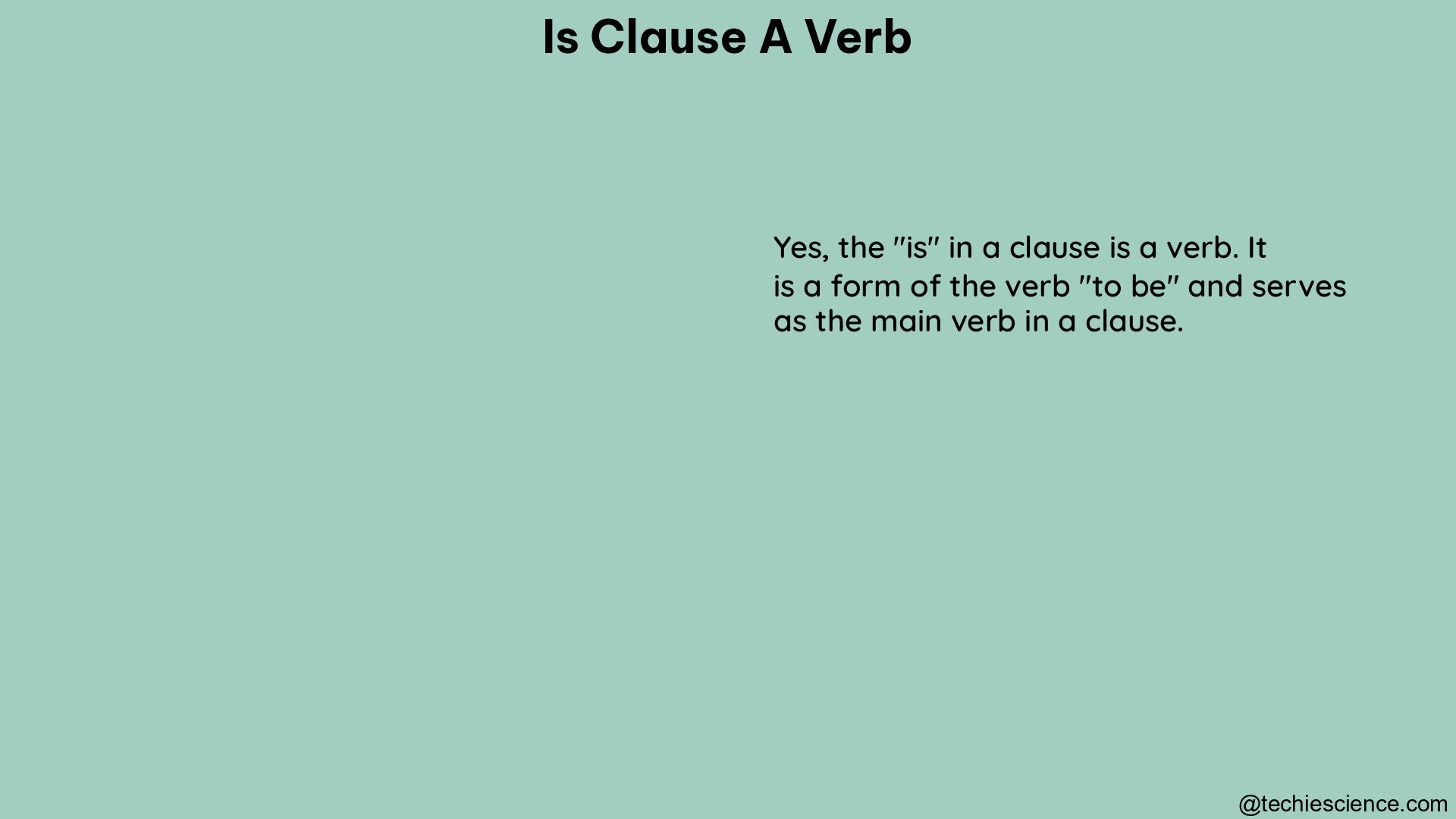No, a clause is not a verb. A clause is a fundamental unit of grammar that consists of a subject and a verb, working together to convey meaning. Understanding the nature and function of clauses is crucial for effective communication in the English language.
Definition of a Clause
A clause is a group of words that includes a subject and a predicate (verb). This combination of a subject and a verb is essential, as it provides information about what the subject is or is not doing. Clauses can function independently as a sentence or be part of a larger sentence structure.
Types of Clauses

Clauses can be classified into different types based on their function and structure:
Independent Clauses
These clauses can stand alone as a complete sentence, as they contain a subject and a verb that express a complete thought.
Example: “I love eating cookies.”
Dependent Clauses
These clauses cannot stand alone and rely on an independent clause to form a complete sentence. They often begin with a subordinating conjunction, such as “when,” “if,” or “because.”
Example: “When it rained”
Noun Clauses
These clauses act as nouns in a sentence, performing functions like the subject, object, or complement.
Example: “What she said was true.”
Adverbial Clauses
These clauses act as adverbs in a sentence, providing information about time, place, manner, or other circumstances.
Example: “Because it was raining, we stayed inside.”
Adjective Clauses
These clauses act as adjectives in a sentence, modifying a noun or pronoun.
Example: “The book that I bought was very interesting.”
Theoretical Explanation
The relationship between the subject and verb in a clause is essential for conveying meaning. This relationship can be used to express actions, states of being, or conditions. Clauses are the building blocks of sentences, and understanding how they function is crucial for effective communication in English.
Advanced Details
Verb First Clauses
These clauses in English typically express yes/no questions, conditions, or commands. They begin with the verb rather than the subject.
Example: “Were you at the party last night?”
Wh-Clauses
These clauses contain a wh-word (e.g., who, what, when, where, why, how) and are used to form questions or relative clauses.
Example: “I wonder what she is doing.”
Small Clauses
These are non-finite clauses consisting of a noun phrase and a predicative expression, without a subject-verb relationship.
Example: “I consider her a good friend.”
Grammatical Specification
The grammatical structure of clauses is essential for understanding their function and role within a sentence. Clauses can be classified based on their independence, function, and the presence of specific grammatical elements.
Independent Clauses
- Can stand alone as a complete sentence
- Contain a subject and a verb that express a complete thought
Dependent Clauses
- Cannot stand alone as a complete sentence
- Rely on an independent clause to form a complete thought
- Often begin with a subordinating conjunction (e.g., “when,” “if,” “because”)
Noun Clauses
- Act as nouns in a sentence
- Can function as the subject, object, or complement
Adverbial Clauses
- Act as adverbs in a sentence
- Provide information about time, place, manner, or other circumstances
Adjective Clauses
- Act as adjectives in a sentence
- Modify a noun or pronoun
Conclusion
In conclusion, a clause is not a verb but rather a group of words containing a subject and a verb that work together to convey meaning. Understanding the different types of clauses and their functions is essential for effective communication in English. By mastering the concepts of clauses, you can enhance your writing, speaking, and overall language proficiency.
References
- Walden University. (2023). What is a clause? – Quick Answers. Retrieved from https://academicanswers.waldenu.edu/faq/72827
- Merriam-Webster. (n.d.). Clause Definition & Meaning. Retrieved from https://www.merriam-webster.com/dictionary/clause
- Grammarly. (n.d.). What are Clauses: Definition and Use Cases. Retrieved from https://www.grammarly.com/blog/clauses/

Hi, My name is Ammu Shaji. I hail from Kerala. I hold a post-graduate degree in English Language and Literature. I am an Academic writer by passion and profession.